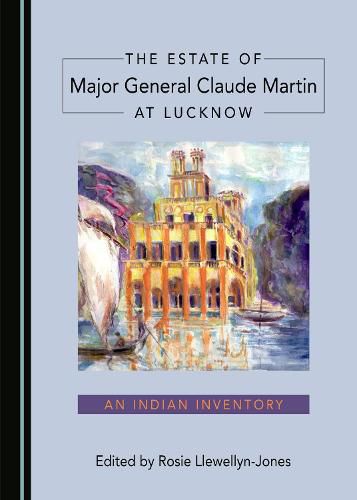Readings Newsletter
Become a Readings Member to make your shopping experience even easier.
Sign in or sign up for free!
You’re not far away from qualifying for FREE standard shipping within Australia
You’ve qualified for FREE standard shipping within Australia
The cart is loading…






This volume offers a unique glimpse into a European household in 18th century India. Claude Martin was an entrepreneurial Frenchman who settled in Lucknow, capital of the rich Muslim state of Awadh (Oudh). The book presents the inventory of his houses here for the first time, together with the catalogue of books from his library. It gathers together six experts to examine Martin’s numerous possessions, and discuss his paintings, silverware, jewellery, textiles, weapons, carriages, boats and hot air balloons. His collection of scientific items imported from the best European instrument makers reveals his practical experiments with electricity and astronomy, while his buildings exploited hydraulic engineering to keep them cool. This book will appeal to readers fascinated by the introduction of Enlightenment ideas into post-Mughal India and the rise of a ‘common soldier’ to the highest ranks of the East India Company. Childless himself, Martin left money to found La Martiniere schools in India and France.
$9.00 standard shipping within Australia
FREE standard shipping within Australia for orders over $100.00
Express & International shipping calculated at checkout
This volume offers a unique glimpse into a European household in 18th century India. Claude Martin was an entrepreneurial Frenchman who settled in Lucknow, capital of the rich Muslim state of Awadh (Oudh). The book presents the inventory of his houses here for the first time, together with the catalogue of books from his library. It gathers together six experts to examine Martin’s numerous possessions, and discuss his paintings, silverware, jewellery, textiles, weapons, carriages, boats and hot air balloons. His collection of scientific items imported from the best European instrument makers reveals his practical experiments with electricity and astronomy, while his buildings exploited hydraulic engineering to keep them cool. This book will appeal to readers fascinated by the introduction of Enlightenment ideas into post-Mughal India and the rise of a ‘common soldier’ to the highest ranks of the East India Company. Childless himself, Martin left money to found La Martiniere schools in India and France.